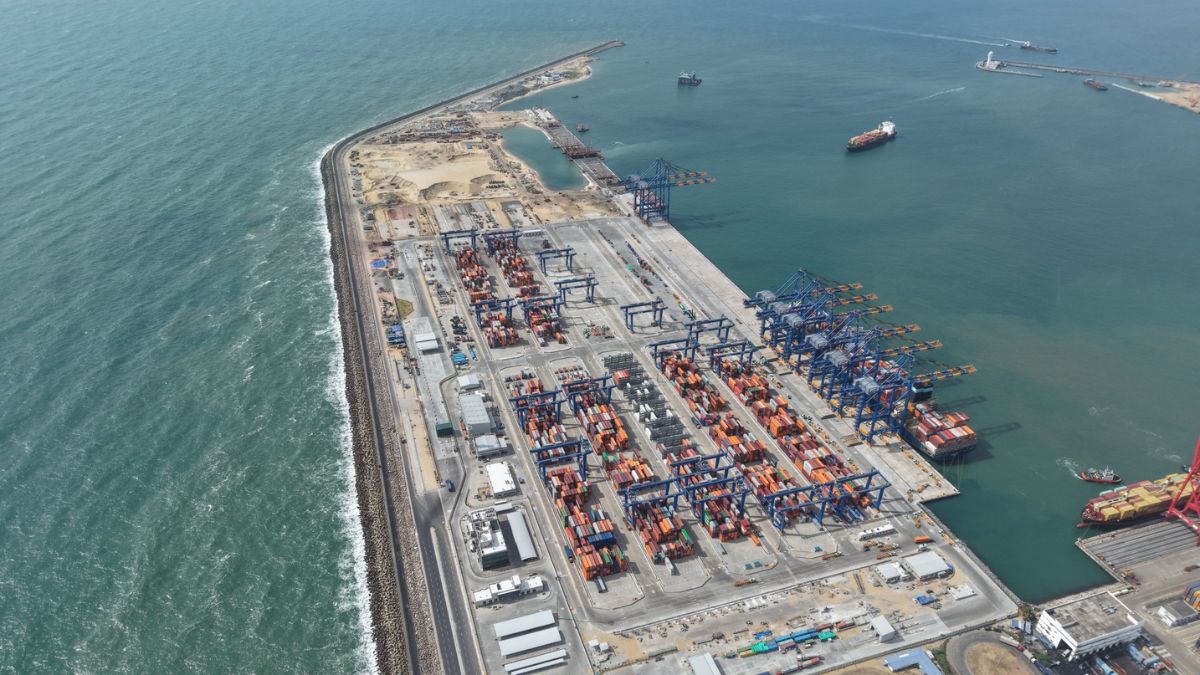Adani-backed Colombo terminal is Sri Lanka’s largest foreign investment contributor
 File: The under-construction 1400M Quay at Colombo West International Terminal (CWIT) from July 2025 | CWIT/X
File: The under-construction 1400M Quay at Colombo West International Terminal (CWIT) from July 2025 | CWIT/X
In a significant boost to India-Sri Lanka economic ties, the Colombo West International Terminal (CWIT) has become the single largest contributor to Sri Lanka's foreign direct investment during the first nine months of 2025, channelling $229 million into cutting-edge port infrastructure, according to Sri Lanka's Board of Investment.
The terminal represents a strategic partnership between Adani International Port Holdings, Sri Lankan conglomerate John Keells Holdings, and the Sri Lanka Ports Authority. This investment has played a pivotal role in driving Sri Lanka's overall FDI inflows to $827 million between January and September 2025—a staggering 138 per cent jump compared to the same period in 2024.
Breaking down the money
The $229 million CWIT investment flowed through four distinct channels: equity capital contributed $133 million, while reinvested retained earnings added another $132 million. Intra-company foreign borrowings brought in $231 million, and long-term foreign commercial loans accounted for $331 million.
Of the total foreign capital secured during this period, $124 million came from fresh project agreements signed with the Board of Investment in 2025, while the remainder stemmed from reinvestments and expansions by existing enterprises.
The CWIT project, valued at $800 million overall, commenced operations in April 2025 as Colombo Port's first fully automated deepwater facility. Featuring a 1,400m quay with 20m depth, the terminal is engineered to handle approximately 3.2 million twenty-foot equivalent units (TEUs) annually, significantly expanding Colombo's capacity and reducing congestion at one of South Asia's busiest ports.
Why CWIT matters for India
For India, CWIT is more than just neighbourhood infrastructure—it's another anchor in a critical maritime route. Positioned adjacent to a terminal operated by China Merchants Port Holdings, CWIT stands as a testament to the competition for influence in the Indian Ocean region between India and China.
The 35-year Build, Operate, and Transfer agreement ensures long-term operational control for the Indian-led consortium.
The terminal's advanced automation is expected to dramatically improve vessel turnaround times, making Colombo an even more attractive transhipment hub for cargo moving between Europe, the Middle East, and Asia-Pacific markets.
This efficiency gain directly benefits Indian exporters and importers who rely on Colombo for cargo consolidation.
"The growth of foreign capital inflows to $827 million in the first nine months of 2025 demonstrates renewed confidence investors have in Sri Lanka's business environment," Board of Investment chairman Arjuna Herath told agencies recently.
The CWIT investment is projected to generate thousands of direct and indirect jobs locally while contributing measurably to Sri Lanka's GDP growth, cementing the deep-rooted economic and strategic partnership between the two neighbouring nations.
Maritime